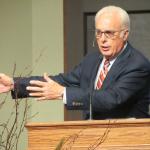
Mica Miller, a 30-year-old pastor’s wife was found dead on April 27, 2024. Her husband, John-Paul Miller, announced her death in church the next day and said it was “self-induced”. The coroner’s report confirmed that it was a suicide. According to reports, Mica had filed for divorce earlier that month. Police records indicate that she expressed fear for her life shortly before her death.
John-Paul Miller said his wife had been battling mental health issues for years, and that she had struggled with suicide in the past, but “God took care of her, and got her through it”.
There have been several discussions around the suspicious circumstances of Mica’s death, and I can understand why some people questioned the coroner’s report. Many believe that even though she may have pulled the trigger that ended her life, she was pushed to do so as a result of the abusive situation she was in. There is so much that we don’t know about Mica’s situation, and rather than speculate, this essay will address what we do know: Mica had a diagnosed mental illness.
Mental illnesses are not “noble lies”
This is significant because a prominent Christian leader recently announced that there was no such thing as mental illness. He said there’s no such thing as PTSD (post-traumatic stress disorder), ADHD (attention deficit- hyperactivity disorder) and OCD (obsessive-compulsive disorder), describing them as “noble lies”, and simply an excuse to medicate people. These comments have been refuted by several people who understand that mental illness is indeed real. One pastor whose family member died by suicide despite being a committed Christian, shares his perspective in this video.
The mental illness- denying pastor referenced a book, The Myth of Mental Illness, by Thomas Szasz, that was initially published in 1961. Szasz was a professor of Psychiatry at SUNY Upstate Medical Center in Syracuse, NY, and a lifetime fellow of the American Psychiatric Association. In order to better understand his assertions, it may be helpful to explore Szasz’s beliefs.
What did Thomas Szasz believe?
According to Mark Ruffalo, in this Psychology Today article, Szasz believed that mental illness is a metaphor for problems in human living, and since there are no biological tests for mental illness, mental illness is not disease in the literal sense. Szasz also opposed involuntary treatment and saw psychiatry as a state-sanctioned mechanism of social control. Ruffalo also states that even though Szasz didn’t see psychiatric disease as something that happens to a person in the way physical illness does, he did recognize that psychiatric illnesses can cause great suffering. Based on this description, it appears that Szasz didn’t deny the existence of mental illness or its potential impact, he just called it by a different name (or names) and didn’t think that medications were the solution. Calling a disease a “non-disease” doesn’t make it any less of a disease, especially if the “non-disease” has a negative impact on the person who is affected. Psychiatric disorders manifest as constellations of various symptoms, which in and or themselves don’t necessarily constitute diseases. A constellation of psychiatric symptoms is classified as a disorder when it interferes with function, as is often the case.
The brain is part of the body
The problem with Szasz’s position is that it places artificial distinctions between physical and mental disorders. The brain is an organ, just like the heart and lungs are, and disorders can occur in the brain’s structure and/or chemistry that manifest as mental illness. The connections between mental health and overall health are now better understood than in the past, and placing categories of health in artificial silos can be very harmful. Sometimes medication is needed to restore the chemical imbalances in the brain. The very real concern of overmedication doesn’t invalidate the authentic need for medication in many cases.
Medication is not used in isolation
When I start patients with opioid use disorder on methadone, I tell them that methadone isn’t a magic pill. The medication is just one part of their treatment, which includes both individual and group counseling. I tell my patients that while we as a treatment team are there to support them, they (each patient) are the most important person in their own recovery process. The decisions they make when they are away from the treatment facility will have a significant impact on their treatment outcomes.
Evidence of things unseen
Szasz seems to have believed that mental illnesses shouldn’t be classified as diseases because we can’t consistently demonstrate pathological findings in the nervous system for patients who are mentally ill. A lot of progress has been made since Szasz published his first book and significant strides have been made in understanding the biological basis of psychiatry. There is still so much we don’t know about mental illness, but our limited knowledge should drive us to learn more, rather than deny the existence of these diseases.
To our dear pastor friends who deny mental illness, may I gently suggest that they consider all the spiritual concepts that they teach their followers and expect them to accept them by faith: the existence of God, the Virgin Birth, the Resurrection, to name a few. Within any faith, there are things we accept regardless of whether we can see them, even if they sound absurd to people outside the faith.
I really don’t think you need faith to acknowledge the reality of mental illness. The point is that we can’t always see things that matter. Our inability to see them doesn’t make them any less real.
Out of the mouth of babes
My heart goes out to the family of Mica Miller and many others like her. Despite the fact that we have limited information regarding the precise circumstances of her death, and the role that mental illness played, this tragic event provides an opportunity for churches to examine how issues related to mental health, domestic violence and spousal abuse are dealt with.
I have written a separate essay addressing the cancellation of a school’s autism awareness week activities by another pastor. In response to the cancellation, a young nine-year-old made the following statement to her six- year- old brother who has autism:
“You know, Bub, people don’t understand… They don’t understand that your brain works differently. And that’s okay. Because we’ll teach them, and it’ll be alright.”
If these pastors won’t listen to professionals, maybe they will listen to a child like Hayley. Afterall, God can use anyone.
May is Mental Health Awareness Month. If you or a loved one are experiencing a mental health crisis, help is available:
-
Call or Text or Chat the 988 Suicide & Crisis Lifeline988. Hours are available 24/7 and the cost is free.
-
ORText HOME to 741741 to reach a trained Crisis Counselor through Crisis Text Line, a global not-for-profit organization. Free, 24/7, confidential.
















